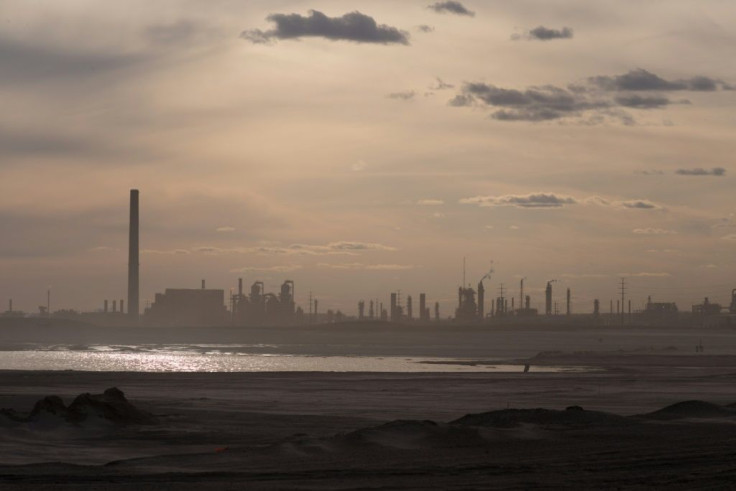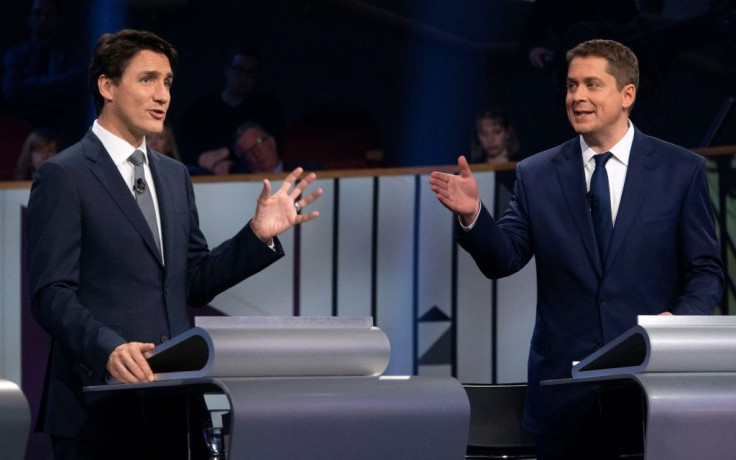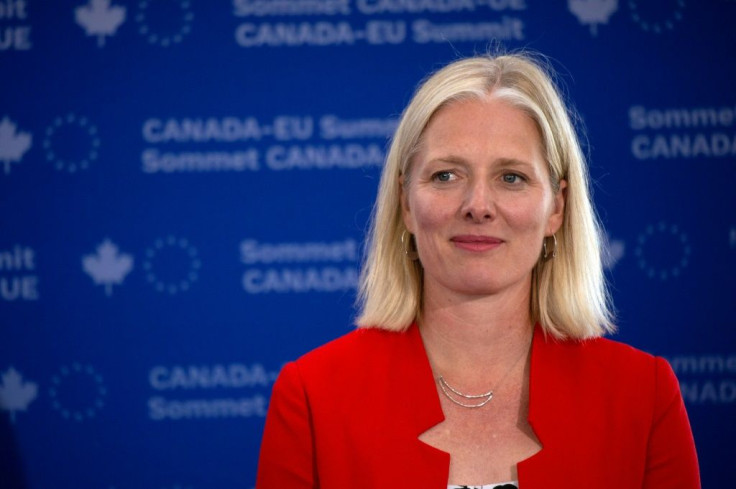Canada Election Puts Spotlight On The Oil-climate Divide

On the eve of Canada's federal elections, Conservatives and Liberals are neck-and-neck in the polls. But in the prairie province of Saskatchewan support for the Tories is steadfast, centered around the fate of the oil and gas industry.
Though Saskatchewan isn't the country's top oil-producing province -- it accounts for roughly 12 percent of Canadian oil output, compared to neighboring Alberta's nearly 80 percent -- the industry is crucial to the region's economy.
And many voters here feel the last four years of Justin Trudeau's Liberal government, with the stricter environmental policies it has rolled out, has hurt them.
"I'd like to see the oil and gas back up, because Trudeau's trying to shut it all down," said 71-year-old Sarah Wall. "He's tearing our country apart; West and East are fighting against each other."
Wall, a retired cleaner, lives in the electoral district of Conservative Party leader Andrew Scheer, in the provincial capital of Regina.
Her neighbors, Peter and Daisy Popkie, were also quick to name oil as a top reason they support Scheer and the Conservatives.
"It just seems like he's more geared to the oil industry out west here," said Peter Popkie.
Their son is studying geology as he prepares for a career in the petroleum industry, a future the Popkies said they are "hoping will look better" under a new government.

"We want him to have a job when he's done," said Daisy Popkie. "Living out west, this is a big push we need: jobs for our people."
Heated climate debate
Andrew Spagrud, who says he "didn't really get involved in politics" in his student days, is now 33 and the CEO of Villanova Energy. When it comes to the elections, he says the choice is "obvious."
"We've been in a four-year cycle of getting beat up -- like the industry's just in a state of disrepair," said Spagrud. "Regulatory issues are just causing our industry to really suffer versus our peer countries."
Canada's economy is relatively strong and the jobless rate is near a historic low, but its oil patch has been hit by a global oil price slump and a flight of foreign investment.

In April, Trudeau's government rolled out a starting carbon tax of Can$20 ($15 US) per ton of carbon dioxide (CO2) emitted, affecting four provinces that had not fallen in line with the prime minister's emissions reduction strategy.
That tax is scheduled to increase incrementally to Can$50 over the coming years to discourage the use of large amounts of fossil fuels.
Six other provinces were initially exempt because each had come up with a carbon tax or cap-and-trade system to help Canada meet its Paris Agreement target of reducing CO2 emissions by 30 percent from 2005 levels by 2030.
Security for one official
The ideological divide over the tax is playing out in courtrooms and legislatures across the country -- with Saskatchewan taking the lead in fighting it to the Supreme Court -- and it figures, unsurprisingly, in election party platforms.
Scheer has said that as prime minister he would repeal the carbon tax and other environmental protections.
In the leadup to the election, oil industry proponents have waged angry protests. Environment Minister Catherine McKenna -- disparaged by critics as "Climate Barbie" and an enemy of the people -- was assigned a security detail.
And former foreign minister Maxime Bernier, who split from the Tories to form his own party, went so far as to call the 16-year-old Swedish climate activist Greta Thunberg "clearly mentally unstable," before walking back his comments.
In contrast, Trudeau last month marched with Thunberg at a massive rally in Montreal, and on Friday she led a protest in Edmonton, Alberta, where she was met by a counter-demonstration featuring big rigs honking their horns.
"It's very difficult for us to have conversations with people on the other side of the spectrum, because things are so personal, because it's impacting our way of life, it's impacting our finances really, our economies out here, and obviously that's a big deal," said Spagrud.
"When I go to bed at night, I think about providing for my family, what things are going to look like in one year, five years, 15 years, and right now all of that, it looks kind of scary."
Jim Farney, who heads the political science department at the University of Regina, noted that the Conservatives "have put a great deal of emphasis this election on opposing the carbon tax, and while they're not a greenhouse-gas-denying, climate-change-denying party, they're also not in a hurry to do much about it.
"So that's a big part of their appeal."
© Copyright AFP {{Year}}. All rights reserved.





















